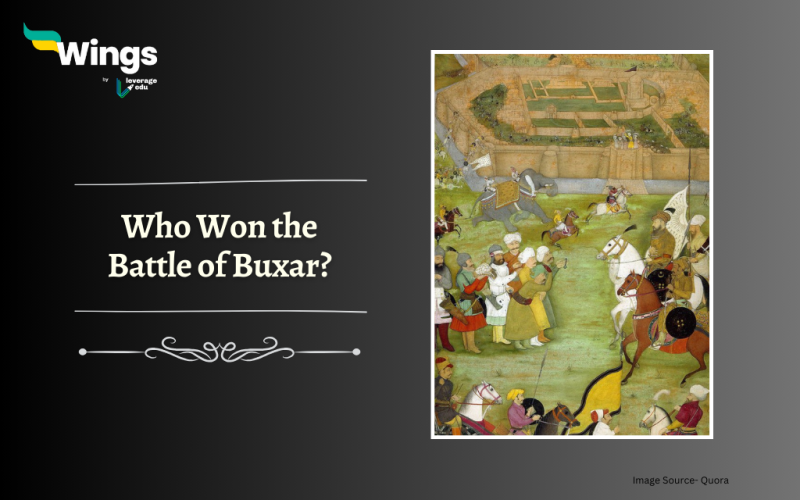Buxar or Baksar was a small city on the banks of the Ganges in the erstwhile Bengal. The battle of Buxar was fought in present-day Bihar on 22 October 1764. It was fought between the British East India Company and the allies of the Mughals. Britishers won the battle of Buxar and made a stronghold of their rule in India. It also resulted in a major chunk of India falling into the hands of Britishers. In this blog, let us get to know more about it.
Table of Contents [show]
Brief on the Battle of Buxar
| Battle of Buxar | Details |
| Date | October 22, 1764 |
| Location | Buxar, Bihar, India |
| Opposing Forces | British East India Company vs. Nawab of Awadh, Nawab of Bengal, Mughal Emperor |
| British Commander | Hector Munro |
Allied Commanders | Shuja-ud-Daula (Nawab of Awadh) |
| Mir Qasim (Nawab of Bengal) | |
| Shah Alam II (Mughal Emperor) | |
| Outcome | Victory of the British East India Company |
| Consequences | Established British domination over Bengal |
| Establishment of the Bengal Presidency |
Course of the Battle of Buxar
As mentioned above the battle was between the Mughal alliances and the British East India Company. The Mughal forces at the time of battle were a mixture of two princely states ruled by Mir Qasim (Nawab of Bengal) and Shah Alam Mughal King.
In the battle of 1763, the Britishers gained good control over the lands of Bengal. Mir Qasim managed to flee to Awadh (Oudh) and formed an ally with the Nawab of Awadh, Shuja-ud-Daulah. This was their final chance to throw English rule from their land.
The joint army of all the allies combined lost the battle to the Britishers in 1765. Moreover, Mir Qasim absconded, on the other hand, the other two leaders Shuja-ud-Daula and Shah Alam II surrendered to the English East India Company’s Army which was led by Major Munro.
Also Read – Battle of Haldighati
Aftermath of the Battle of Buxar
After the battle of Buxar, a treaty was signed. The ‘Treaty of Allahbad’ in 1765.
| Treaty of Allahabad, 16 August 1765 | |
| Signed | 16 August 1765 |
| Parties Involved | Mughal Emperor: Shah Alam II East India Company: Robert Clive |
| Key Points | East India Company received Diwani rights |
| Right to collect taxes on behalf of the Emperor from Bengal-Bihar-Orissa. | |
| Significance | Marks British political and constitutional involvement |
This ended the Mughal Empire the last prominent empire left by this time was the Maratha Empire. East India Company gained control over Bengal and Bihar. This also concluded with British rule in half of the nation. All these changes have played a vital role in the modern history of the nation’s society, culture and politics.
That’s all about who won the Battle of Buxar. If you want to read more articles like this, you can get Study notes on the Modern History of India here. Also, you can visit our general knowledge page on Indian History!
 One app for all your study abroad needs
One app for all your study abroad needs















 45,000+ students trusted us with their dreams. Take the first step today!
45,000+ students trusted us with their dreams. Take the first step today!
